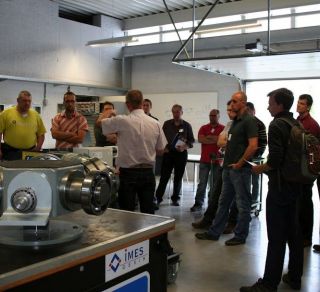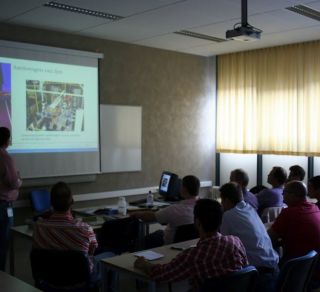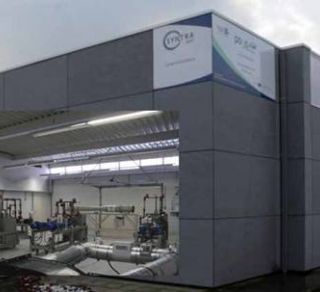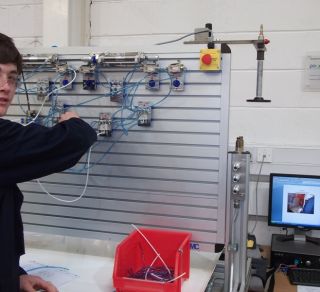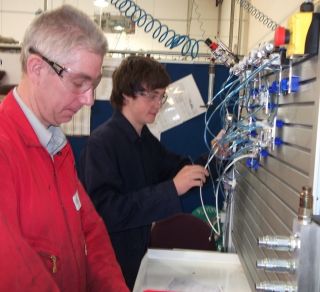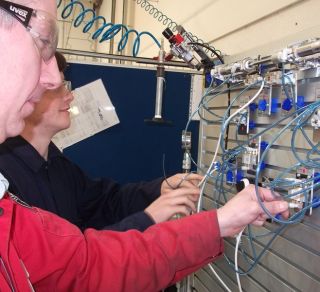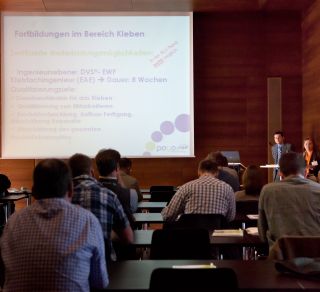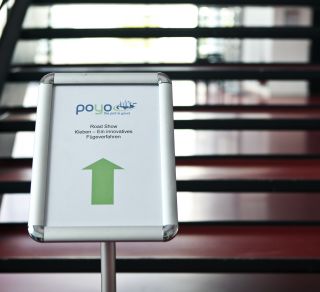 |
|

POYOThe Port is YoursBackground and AimAim The binding factor in the strengthening of the cluster was to come towards a standard on certification of all maintenance techniques. This would enable the industry, policy makers and knowledge institutes to focus to their core competences, reaching innovation and economic growth for the whole area. Certification also meant education. Especially with innovative techniques like adhesive bonding, the only way to ensure conformity to certification standards was by getting and keeping staff up to date through training. Background All North Sea ports are facing similar challenges. They want to increase production, stay economically sound and keep their leading role. Furthermore, demographical issues play a role: It has become increasingly difficult to attract sufficiently skilled employees, whilst a considerable amount of existing technical staff is about to retire. This means that a lot of effort needs to be put into education and recruitment of people to work in the harbour. The third challenge that the port areas face, is the upcoming competition. Emerging markets, like China, show a huge increase in throughput and investment in port areas over the last years. The labour costs are very low there and there is not so much focus on environmental issues as in Europe. POYO addressed these challenges by addressing a common process that was of major importance to all industry in port areas and also to the SME's involved. The Lisbon strategy puts knowledge and innovation at the heart of European growth. This was facilitated by POYO by the knowledge transfer of innovative maintenance techniques between different industrial sectors and the development of standards and certification, which improved innovation. The innovative technique of adhesive bonding was used as a test case within the sectors of automotive, aircraft, ship building and the petrochemical industry in the North Sea Region (at the time, this technique was only certified in Germany). Some networks were established in the areas of the different POYO partners, existing of industry, policy makers and research institutes. The project aimed to strengthen and empower these networks to become real international clusters.
Information HubFinal conference program
Final conference participants Article POYO Lijmsyposium Article POYO newsletter VHS Folder Roadshow Hamburg Handbook on certification Invitation round table Rotterdam 2012 List participants road show Hamburg Poyo brochure Dutch Program roadshow Belgium 2012 Participants roadshow Belgium Newsletter apr12 Albeda Newsletter mar12 Albeda Newsletter jun12 Albeda Newsletter 2 jun12 Albeda Flyer road show Newcastle POYO RoadShow Hamburg Poyo Road Show Belgium Inventory Maintenance courses Germany Inventory Maintenance Courses Belgium Inventory Maintenance Courses UK (GH) Inventory Maintenance Courses UK (NC) Inventory Maintenance Courses Netherlands Inventory Technologies Germany Inventory Technologies Belgium Inventory Technologies UK (GH) Inventory Technologies UK (NC) Inventory Technologies Netherlands There are no related videos
|
